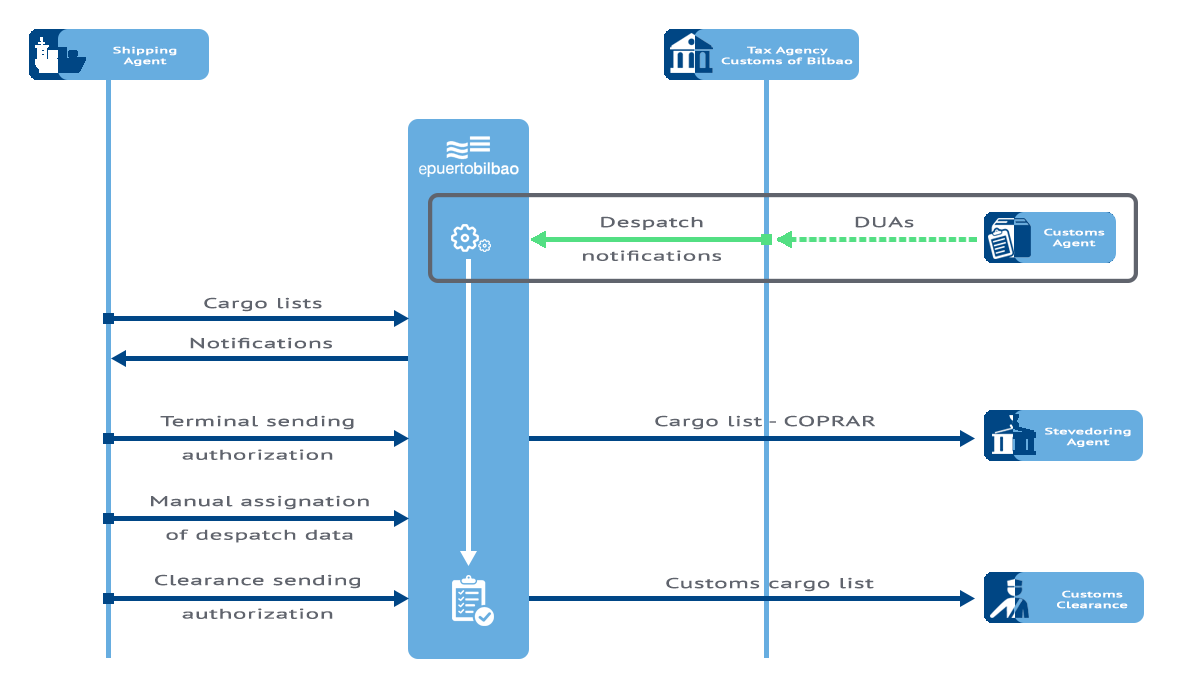The Bilbao Port Authority has presented the paper-free export clearance service to the port community. It is available as from this month via the e-puertobilbao e-commerce platform and is added to other services, such as paper-free import clearance. The meeting was well attended by representatives of shipping agents, stevedoring terminals, container and general cargo operators, and representatives of Bilbao Customs & Excise.
This service is designed to facilitate the drawing up of the cargo lists for export and their customs verification as well as the transmitting of them to the stevedoring companies (terminals) and to the fiscal safeguard/customs. It is geared towards shipbroker companies and allows the cargo lists for export to be crossed with the clearance notifications from Customs and Excise. The circuit harmonises the various complementary business processes in real time throughout the activity chain of port logistics, such as the drawing up of lists of goods to be embarked, the planning of loading operations and the clearance of the said goods.
As its name suggests, paper-free clearance makes it possible to eliminate hard copies, which makes for significant time savings while this transaction is being managed by the ship-broker; it offers a single electronic format processed by the stevedoring terminals, and a more user-friendly, efficient consultation and control for the fiscal safeguard/customs.
It is available not only for container goods but also for conventional general cargo. It also allows automatic crossing to be made between the list of containers/cargo consignments, a manual allocation of single administrative documents not included in the clearance notifications. So the loading list managed via e-puertobilbao will include an automatic validation of its completion for all those that receive and manage it.
Significant time savings
This new service expands the range of solutions (7 documentation circuits) which the e-puertobilbao telematic platform is offering its users (over 250 companies in the maritime-port community) just a few days before it will be five years since its implementation through the PIDE integrated calls service (1 December, 2003).




